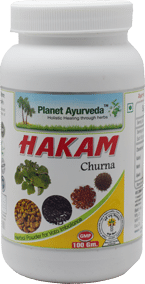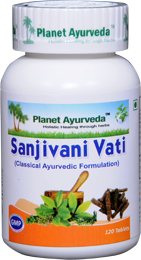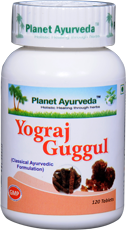About Pelvic Pain

Pelvic pain is present in both men and women. There can be a number of causes for this to happen.
Pelvic pain refers to pain the region of women’s internal reproductive organs. There can be problem with reproductive organs like ovaries, uterus, fallopian tubes, cervix etc. which may result in pelvic pain, it varies from mild to severe. It can be constant or on and off. It can radiate to lower back or thighs too.
Pelvic pain turns chronic when it persists for few months and this can be due to other internal organs like colon, bladder (non reproductive organs) so first thing is to rule out due to which symptoms take place and then accordingly one can go ahead with treatment.
What are the Causes of Pelvic Pain?
Here are few possible causes of pelvic pain in both males and females:-
- STD’s (sexually transmitted diseases)
- Pelvic injury
- Urinary bladder disorders
- Kidneys stones
- Kidney infection
- Intestinal disorders
- Appendicitis
- IBS (irritable bowel syndrome)
- Ulcerative colitis
- Nerve conditions
- Hernia
POSSIBLE CAUSES IN FEMALES
- Abortion
- Pelvic inflammatory disease
- Uterine cancer
- Ovarian cysts
- Fibroid
- Menstrual cramps
- Ovulation
- Cervical cancer
- Ectopic pregnancy
- Endometriosis
If We Talk About Symptoms
- May be mild to moderate to severe.
- Dull ache
- Feeling of pressure
- Pain comes and goes
- Sharp cramps
- Bloating of gas
- Pain while having intercourse
- Pain while passing stools
- Pain when one sits for a very long time.
Methods Which Help to Diagnose Pelvic Pain
- Urine test
- Blood test
- Stool test
- Ultrasound
- CT scan of abdomen and pelvic region
- X Rays of abdomen and pelvic region
- Hysteroscopy (examination of uterus)
- Laparoscopy
What is Ayurvedic Point of View for Pelvic Pain?
Ayurveda, a science of life is natural health care system that originated in India more than 5000 years ago.
Ayurveda emphasizes prevention of health diseases and promotion of health and wellbeing.
Vata, Pitta and Kapha are three energies of body which decide individual’s body nature and accordingly diet and life style is recommended. As everyone is different genetically, recommendations also varies person to person and also it depends upon the each season of the year.
According to Ayurveda, pelvic pain is due to vitiation of Vata and pitta dosha. Dietary and life style habits like intake of much sour, dry, spicy, hot, foods, having so much stress, tension, anger etc. cause vitiation of vat and pitta dosha which in turn leads to obstruction of body channels and takes its Adhisthan (seat) at pelvic region to present with symptoms as mentioned above.
Ayurveda believes that when there is equilibrium of doshas, dhatus and mala in body one is healthy and their imbalance causes health issue.
Herbal Remedies for Pelvic Pain by Planet Ayurveda
Planet Ayurveda offers effective herbal remedies such as Hakam Churna, Sanjivani Vati & Yograj Guggul for ayurvedic and natural treatment of pelvic pain. These herbal remedies are prepared from using best quality herbs and strictly follow the principles of Ayurveda. All these herbal remedies of Planet Ayurveda are 100 percent pure, natural and vegetarian. These are free from chemicals, additives and preservatives. These remedies are safe to use as these are free from side effects.
1. Hakam Churna
Hakam churna is formulated on the basis of ayurvedic tridosha principle as its constituents are effective on all the three dosha. In Ayurvedic literature the root cause of all disorders arises from stomach disturbances. Hakam churan is an effective digestive, carminative and anti spasmodic formula.
Hakam churna contains:-
- Chandrasoor
- Kalonji
- Methi
- Ajwain
The combination of these herbs is hot, dry and light resulting in pacification of vata due to its hot property, kapha due to its hot and dry property and alleviates pitta by its dryness.
1. Candrashoor is a herb, which is sweet, pungent and bitter in taste, hot in potency. It pacifies vata and kapha doshas. It is an appetizer, carminative, blood purifier, anti-inflammatory and diuretic. It stimulates proper blood flow in pelvic region, which helps in relieving pain in PMS. It acts on digestive system as a stimulant and cools agitated mind side by side. It helps in proper union in fracture.
2. Ajwain is commonly used in every Indian kitchen. It is traditionally used to relive pain due to gas, indigestion and colic. Thymol is the active chemical constituent which works wonderfully on gastrointestinal tract. It is effective in various disorders related to gastric tract like indigestion, loss of appetite, dysentery, flatulence, colic pain. Ajwain is helpful in expelling out intestinal worms. It is safe for children also. ajwain relieves spasmodic pain during menstruation.
3. Kalonji is also known to benefit the stomach due to anti-bacterial properties. The black colored seeds are triangular in shape, have a pungent smell and contain a considerable amount of volatile oil. Kalonji seeds have been known to have many healing properties including skin disorders, migraine, earache, palpitations, chronic colds, paralysis, alopecia, asthma, bee stings, facial palsy, respiratory diseases, hiccups, general weakness, kidney pain, stomach pain, indigestion, joint pain. Its seeds contain Saponin, Volatile oil, Nigelline (a bitter tasting constituent). Kalonji contains volatile oil that have Linolatic acid 60% and 21% Lipase. It keeps the body cool in hot environment. It amplifies the resisting power of the body.
4. Methi is known as fenugreek in English. It is used in kitchens across the world. It has the natural chemical constituents to stimulate appetite. It pacifies vata and balances kapha and pitta. It clears the channels to improve digestion, heals wounds and reduces inflammation and pain. Methi works effectively in pelvic pain due to inflammation or aggravated vata dosha. Methi is also beneficial in diabetes, loss of libido, hot flushes in menopause. It works as a galactagogue in lactating mothers. It also has anti-arthritic and rejuvenative property.
Dose:- One tsp. two times daily with plain water after meals.
2. Sanjivani Vati
It’s name “Sanjivani Vati” denotes its effectiveness i.e. this tablet infuses power in life. This formulation is mentioned in ayurvedic text “sharangdhara samhita’. It is popularly known for its immunity enhancing and healing properties. Sanjivani Vati is the perfect formulation to combat inflammation.
Sanjivani vati contains herbs like Sonth (Zingiber officinale), Harad (Terminalia chebula), vidanga (Embelia ribes), Giloy (Tinospora cordifolia), Bhallataka (Semecarpus anacardium), Pippali (Peepal (Piper longum), Bibhitaka (Terminalia bellirica), vacha (Acorus calamus), Amalaki (Emblica officinalis).
Sanjivani vati is effective on endotoxins (Ama). It is used to treat indigestion, anorexia, nausea, chronic constipation, irritable bowel syndrome and diseases related to aggravated vata and kapha. This tablet is the best natural option to treat auto immune disorders such as rheumatoid arthritis, as it acts as immune modulator.
Dose:- 2 tablets twice or thrice daily with plain water after meals.
3. Yograj Guggul
Yograj Guggul is a versatile classical Ayurvedic formulation. Guggulu (Commiphora mukul) is used as its base and contains many herbs like triphala, sunthi, pippali, chavya, pipplimool, hing, ajmoda, indrayava, patha, vidanga, kutki, ativisha, vacha, guggulu, etc. This tablet balances all three Doshas – Vata, Pitta and Kapha but extensively yograj guggul is a traditional formulation designed to pacify excess vata in the body. It is beneficial in the conditions where vata is accumulated in the joints and muscles. Chronic accumulation of vata in the body affects metabolism, can lead to serious conditions such as arthritis and rheumatism. Yograj guggul provides strength to skeletal muscles, ligaments and nerves. It enhances the body metabolism and provides power to the body, relieves nerve pain, relieves tenderness, stiffness and inflammation. It is widely indicated in various diseases by ayurvedic practitioners such as joint diseases, gout, skin diseases, piles, diabetes, fistula, bloating, low digestion power, asthma, cold, anorexia, infertility. It is potent rejuvenator and has antioxidant property.
Dose:- 2 tablets twice or thrice daily with plain water after meals.
Dietary Guidelines
- Prefer high fiber diet
- Drink plenty of water
- Coconut water is good to have
- Opt for vegetables like bottle gourd, bitter melons, ridge gourd, round gourd, pumpkin etc.
- Spinach, carrot, radish, papaya, apples, pears are good to have.
- Avoid using salt in excess
- Avoid alcohol and smoking
- Say no to all kind of junk, fried and spicy foods
- Limit non veg intake
- Do not take stress and relax your mind



